The Zika Virus in Florida: A Comprehensive Overview
Related Articles: The Zika Virus in Florida: A Comprehensive Overview
Introduction
With great pleasure, we will explore the intriguing topic related to The Zika Virus in Florida: A Comprehensive Overview. Let’s weave interesting information and offer fresh perspectives to the readers.
Table of Content
- 1 Related Articles: The Zika Virus in Florida: A Comprehensive Overview
- 2 Introduction
- 3 The Zika Virus in Florida: A Comprehensive Overview
- 3.1 Understanding the Zika Virus
- 3.2 Zika Virus in Florida: A Historical Context
- 3.3 Impact of Zika Virus in Florida
- 3.4 Addressing the Zika Threat: Public Health Measures
- 3.5 Preventing Zika Virus Infection
- 3.6 FAQs about the Zika Virus in Florida
- 3.7 Tips for Preventing Zika Virus Infection
- 3.8 Conclusion
- 4 Closure
The Zika Virus in Florida: A Comprehensive Overview

The Zika virus, a mosquito-borne disease, has garnered significant global attention due to its potential health complications, particularly for pregnant women and their developing fetuses. While the Zika virus has been present in various parts of the world for decades, its emergence in the Americas, specifically in Florida, in 2016, sparked widespread concern and prompted extensive public health efforts.
This article delves into the complexities of the Zika virus in Florida, providing a comprehensive overview of its characteristics, transmission, impact, and the measures undertaken to address the threat.
Understanding the Zika Virus
The Zika virus is a member of the Flavivirus genus, which also includes dengue, yellow fever, and West Nile virus. It is primarily transmitted through the bite of infected Aedes mosquitoes, notably Aedes aegypti and Aedes albopictus. These mosquitoes are commonly found in tropical and subtropical regions, including Florida.
Zika virus infection is often asymptomatic, meaning individuals may not experience any symptoms or experience mild symptoms that are easily mistaken for other common illnesses. However, in some cases, Zika can lead to serious health complications, especially for pregnant women.
Zika Virus in Florida: A Historical Context
While the Zika virus was initially identified in Uganda in 1947, it remained largely confined to Africa and Asia for decades. In 2015, the virus began spreading rapidly throughout the Americas, reaching Florida in 2016. This outbreak was attributed to the increased presence of Aedes mosquitoes in the state, coupled with the virus’s ability to spread through sexual transmission.
Impact of Zika Virus in Florida
The Zika virus outbreak in Florida had significant health and economic consequences:
- Congenital Zika Syndrome: The most concerning aspect of the Zika virus is its association with congenital Zika syndrome (CZS). This condition can cause severe birth defects, including microcephaly (abnormally small head), brain damage, and other developmental problems.
- Guillain-Barré Syndrome: In rare cases, Zika virus infection has been linked to Guillain-Barré syndrome, a neurological disorder that causes muscle weakness and paralysis.
- Economic Impact: The outbreak led to significant economic losses, impacting tourism, healthcare, and other sectors.
- Public Health Response: The Florida Department of Health (DOH) implemented a comprehensive public health response, including mosquito control efforts, surveillance, and public education campaigns.
Addressing the Zika Threat: Public Health Measures
The Florida DOH employed a multi-pronged approach to combat the Zika virus:
- Mosquito Control: Intensive mosquito control measures were implemented, including larviciding (killing mosquito larvae) and adulticiding (killing adult mosquitoes).
- Surveillance: The DOH established a robust surveillance system to monitor the spread of the virus and identify cases promptly.
- Public Education: Public education campaigns were launched to raise awareness about Zika virus transmission, symptoms, and prevention measures.
- Vector Control: Efforts were made to control mosquito populations through habitat modification, source reduction, and other vector control methods.
- Testing and Treatment: The DOH provided Zika virus testing and treatment services to individuals who exhibited symptoms.
Preventing Zika Virus Infection
The most effective way to prevent Zika virus infection is to avoid mosquito bites:
- Use Insect Repellent: Apply insect repellent containing DEET, picaridin, oil of lemon eucalyptus, or IR3535 to exposed skin.
- Wear Protective Clothing: Wear long-sleeved shirts, long pants, and socks to minimize exposed skin.
- Stay in Air-Conditioned Areas: When possible, stay indoors or in air-conditioned areas where mosquitoes are less likely to be present.
- Eliminate Standing Water: Eliminate sources of standing water around your home, as this is where mosquitoes breed.
- Use Mosquito Nets: Sleep under mosquito nets, especially if you are traveling to areas where Zika virus transmission is prevalent.
- Practice Safe Sex: If you or your partner have traveled to an area where Zika is prevalent, practice safe sex or abstain from sexual activity to prevent transmission.
FAQs about the Zika Virus in Florida
1. How is the Zika virus transmitted?
The Zika virus is primarily transmitted through the bite of an infected Aedes mosquito. However, it can also be transmitted through sexual contact, blood transfusions, and from a pregnant mother to her fetus.
2. What are the symptoms of Zika virus infection?
Many people infected with Zika virus do not experience any symptoms. However, some may experience mild symptoms such as fever, rash, joint pain, conjunctivitis (red eyes), and headache.
3. Is there a vaccine for Zika virus?
Currently, there is no vaccine or specific antiviral treatment for Zika virus infection. However, research is ongoing to develop vaccines and treatments.
4. What are the risks of Zika virus infection during pregnancy?
Zika virus infection during pregnancy can lead to congenital Zika syndrome (CZS), which can cause severe birth defects.
5. What measures are being taken to control the Zika virus in Florida?
The Florida DOH has implemented a comprehensive public health response, including mosquito control efforts, surveillance, public education campaigns, and vector control methods.
6. How can I protect myself from Zika virus infection?
The most effective way to prevent Zika virus infection is to avoid mosquito bites. Use insect repellent, wear protective clothing, stay in air-conditioned areas, and eliminate standing water.
7. Is Zika virus still a threat in Florida?
While the Zika virus outbreak in Florida has subsided, it is still considered a potential threat. The Aedes mosquitoes that transmit the virus are present in the state, and cases can still occur.
8. What should I do if I think I have Zika virus?
If you experience symptoms consistent with Zika virus infection, consult your healthcare provider immediately. They can provide testing and appropriate treatment.
Tips for Preventing Zika Virus Infection
- Use insect repellent: Apply insect repellent containing DEET, picaridin, oil of lemon eucalyptus, or IR3535 to exposed skin.
- Wear protective clothing: Wear long-sleeved shirts, long pants, and socks to minimize exposed skin.
- Stay in air-conditioned areas: When possible, stay indoors or in air-conditioned areas where mosquitoes are less likely to be present.
- Eliminate standing water: Eliminate sources of standing water around your home, as this is where mosquitoes breed.
- Use mosquito nets: Sleep under mosquito nets, especially if you are traveling to areas where Zika virus transmission is prevalent.
- Practice safe sex: If you or your partner have traveled to an area where Zika is prevalent, practice safe sex or abstain from sexual activity to prevent transmission.
Conclusion
The Zika virus outbreak in Florida served as a stark reminder of the potential health risks posed by mosquito-borne diseases. The state’s public health response, while effective in mitigating the outbreak, highlighted the importance of ongoing surveillance, mosquito control, and public education campaigns. It is crucial to remain vigilant and continue implementing preventive measures to minimize the risk of Zika virus infection and its associated complications.

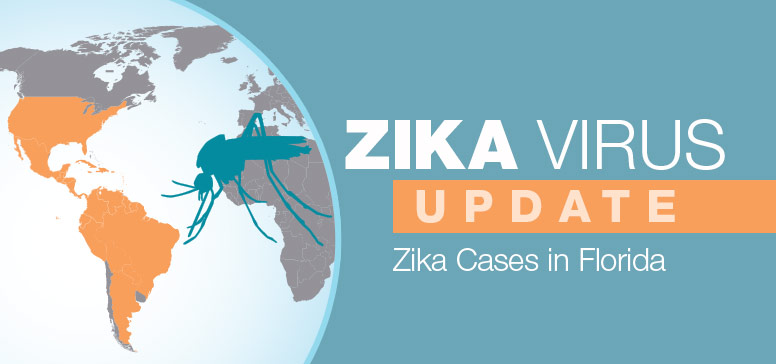
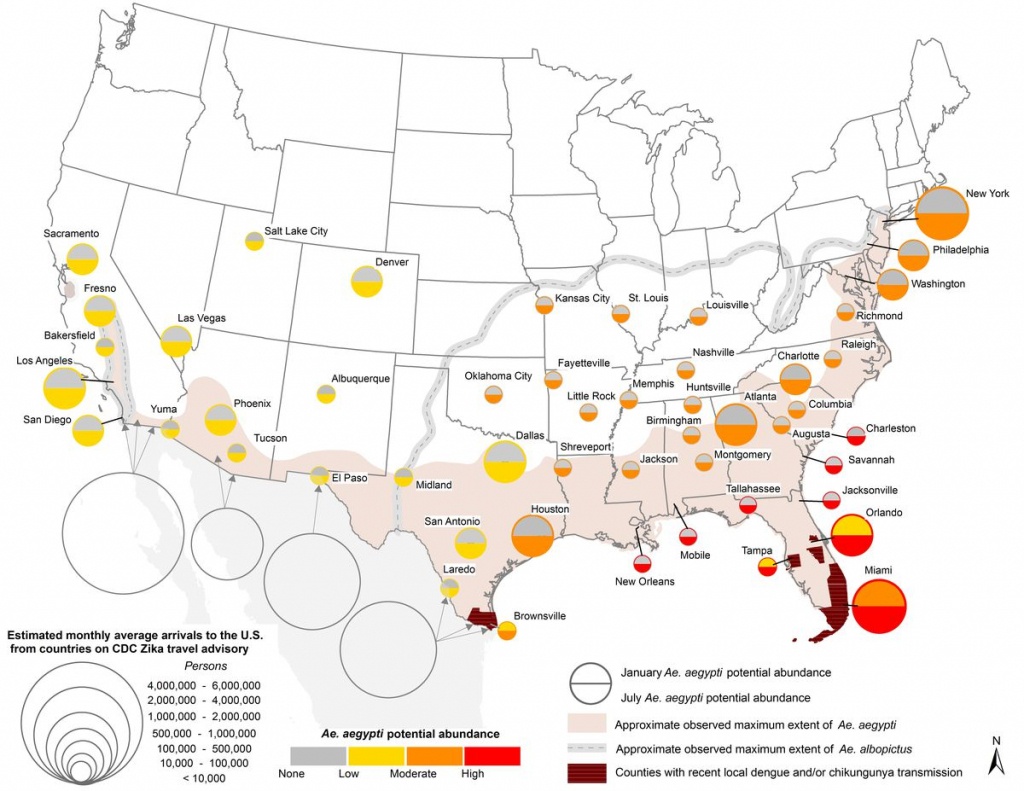
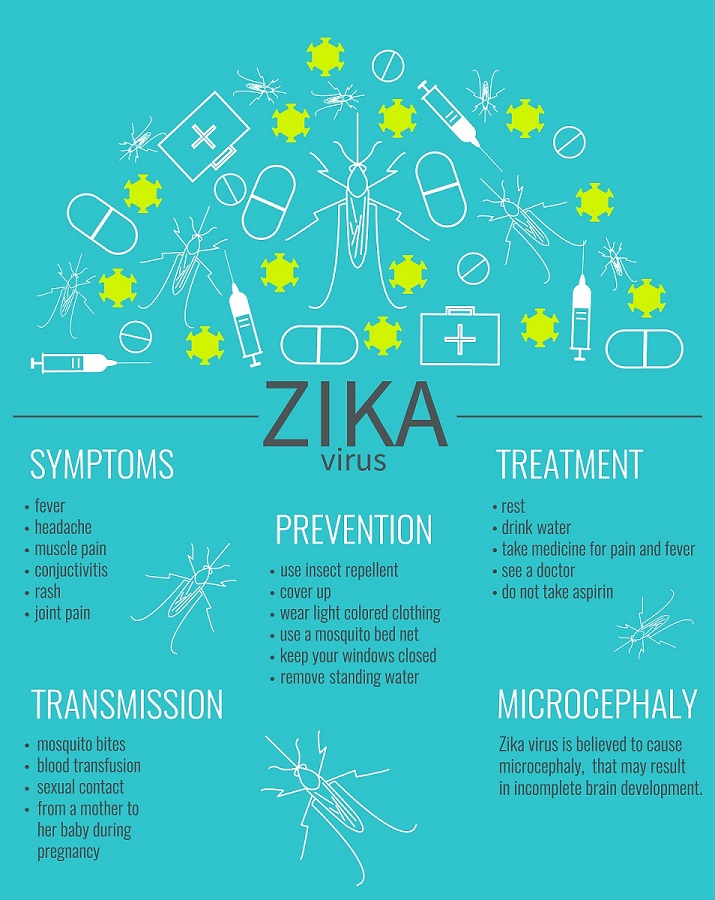
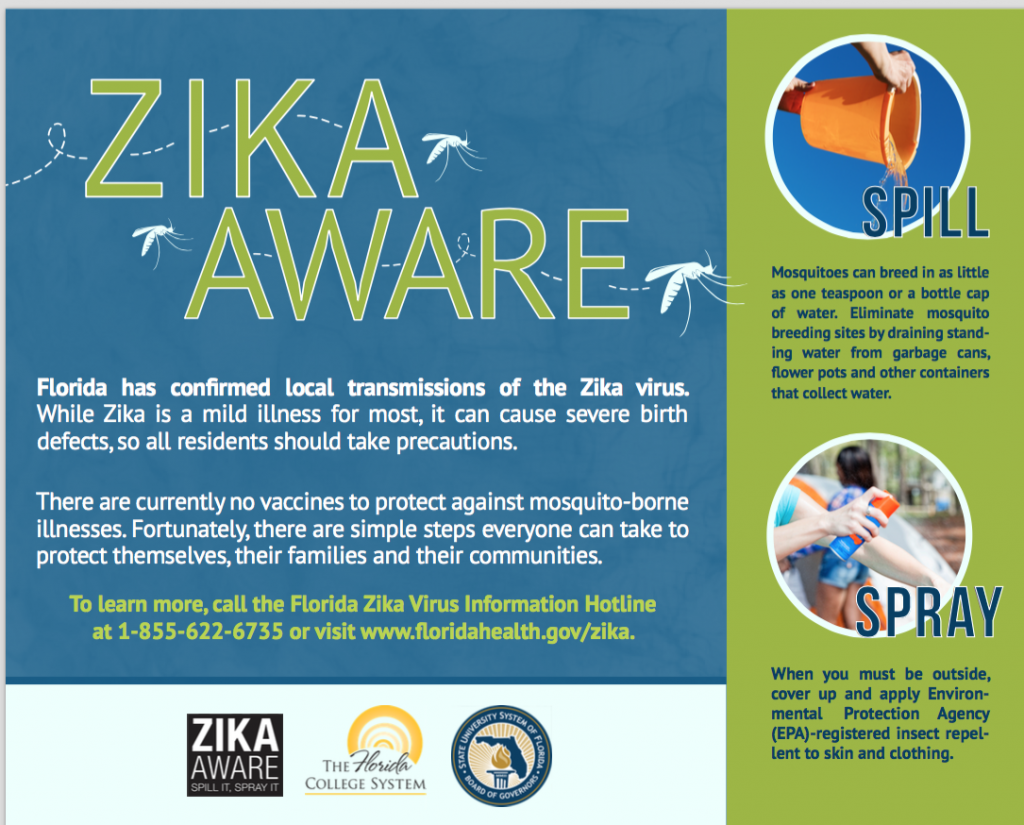

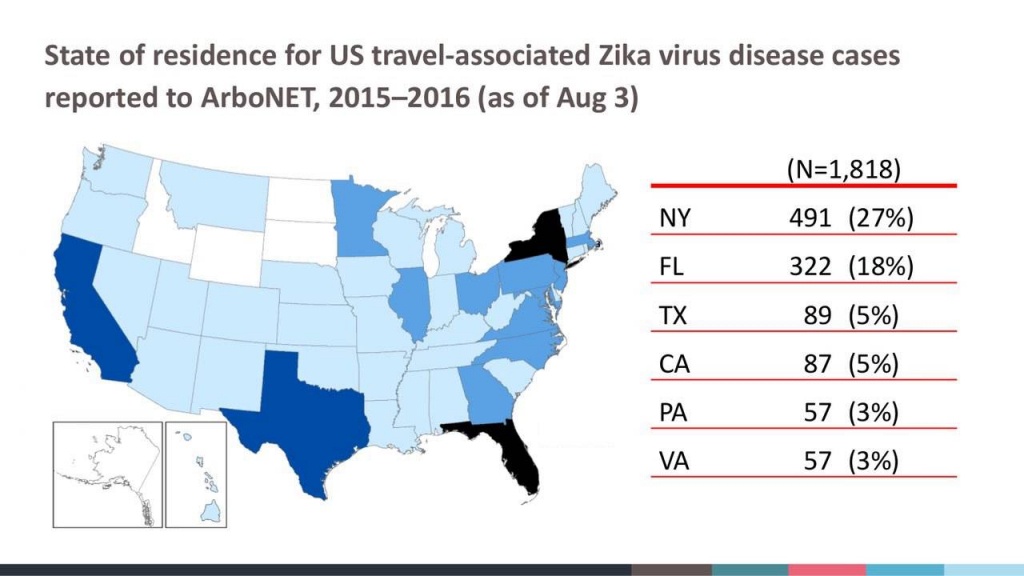
Closure
Thus, we hope this article has provided valuable insights into The Zika Virus in Florida: A Comprehensive Overview. We thank you for taking the time to read this article. See you in our next article!